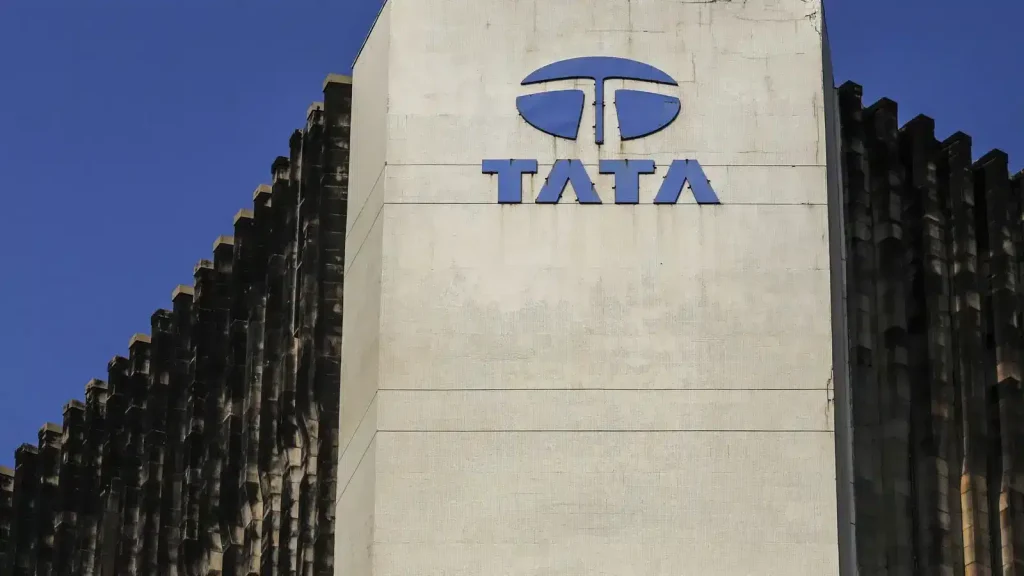Tata Motors, TCS Launch AI-Driven Sustainability Platform to Advance Net-Zero and ESG Reporting

• Five-year partnership digitizes Tata Motors’ sustainability operations using TCS’s AI-powered Intelligent Urban Exchange platform.
• The new system enables real-time emissions tracking, ESG compliance reporting, and supply-chain transparency aligned with SEBI’s BRSR framework.
• The collaboration strengthens Tata Group’s decarbonization and circular economy agenda under Project Aalingana.
Mumbai-based Partnership Targets Full-Spectrum Sustainability Integration
Tata Consultancy Services (TCS) and Tata Motors have entered a five-year collaboration to overhaul sustainability management across the automaker’s operations. The initiative centers on Prakriti, a digital platform co-developed with TCS and powered by its AI-driven Intelligent Urban Exchange (IUX) software. Designed to unify and automate environmental, social, and governance (ESG) data, Prakriti enables real-time emissions computation, compliance reporting, and advanced analytics—transforming how sustainability is tracked and managed within India’s largest automotive manufacturer.
The project comes as Tata Motors accelerates its path toward net-zero emissions, targeting 2040 for passenger vehicles and 2045 for commercial ones. The company’s sustainability framework extends beyond decarbonization to include circularity, biodiversity, and resource efficiency—domains where data accuracy and integration have traditionally lagged.
Digitizing ESG Data to Meet India’s Regulatory and Global Reporting Demands
Under India’s Business Responsibility and Sustainability Reporting (BRSR) regime, listed companies face intensifying pressure to provide transparent and verifiable sustainability disclosures. For automakers like Tata Motors, this entails tracking direct and indirect emissions, including Scope 3 data from suppliers and dealers.
Through IUX, TCS aims to eliminate manual reporting bottlenecks by automating ESG data capture across plants, product lines, and value-chain partners. The system provides a single source of truth for emissions measurement and regulatory submissions, enabling the company to improve compliance while identifying operational efficiencies.
SJR Kutty, Chief Sustainability Officer at Tata Motors, said the collaboration embeds sustainability “as an intelligent and automated process across our operations and value chain,” reflecting the Tata Group’s planet resilience strategy under Project Aalingana. The initiative is anchored on three pillars: decarbonization, circularity, and nature restoration.

Technology as an ESG Backbone
For TCS, the deployment of IUX marks a wider push to position artificial intelligence and analytics at the center of sustainability governance. The platform’s configurability to sector-specific needs—such as automotive manufacturing—allows for tailored monitoring of carbon value chains, waste reduction, and biodiversity metrics.
Anupam Singhal, President of Manufacturing at TCS, said sustainability must move “beyond compliance” toward transparency and accountability as shared societal imperatives. “Together, we are reimagining how enterprises operate—making them more resilient and more aligned with a cleaner, responsible world,” he noted.
The IUX framework combines AI and machine learning to create predictive insights for emissions reduction and climate-risk mitigation. It also supports “Carbon for Good” initiatives and biodiversity tracking, enabling companies to model their long-term environmental footprint.
RELATED ARTICLE: ESG Book, BCG Launch Sustainability Reporting Platform ‘LEO’
From Compliance to Value Creation
Rajesh Kannan, CEO of Tata Motors Digital.AI Labs, emphasized that the partnership allows the company to “set new benchmarks in managing sustainability initiatives aligned with BRSR standards.” The data-driven foundation, he said, will equip Tata Motors with insights that strengthen operational integrity, transparency, and investor confidence amid growing scrutiny of corporate ESG disclosures.
By integrating sustainability data across its supply chain, Tata Motors intends to extend environmental accountability to its network of suppliers and dealers. This could play a critical role in addressing Scope 3 emissions—an area often cited as the most complex for automakers given their extensive supplier base.
Broader Implications for India’s Industrial Decarbonization
The partnership reinforces the Tata Group’s approach to embedding sustainability across business lines, leveraging technology to operationalize ESG goals. For India’s manufacturing sector, which accounts for a significant share of national emissions, such digital tools could accelerate compliance with domestic and international standards.
As investors and regulators push for transparency in climate-related disclosures, the Tata–TCS collaboration offers a model for how large industrial players can translate net-zero ambitions into measurable outcomes. With IUX serving as the digital backbone, Tata Motors’ Prakriti platform represents a shift toward technology-enabled ESG governance—a framework that other Indian corporations are likely to emulate as sustainability transitions become a defining feature of competitiveness.
At its core, the alliance reflects an evolving corporate landscape where AI and sustainability intersect—not just to meet reporting mandates, but to build resilient, future-ready value chains aligned with global climate objectives.
Follow ESG News on LinkedIn












